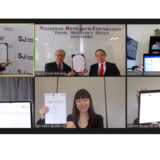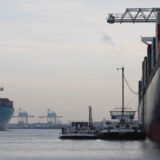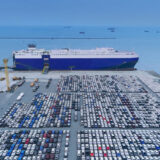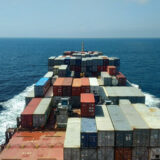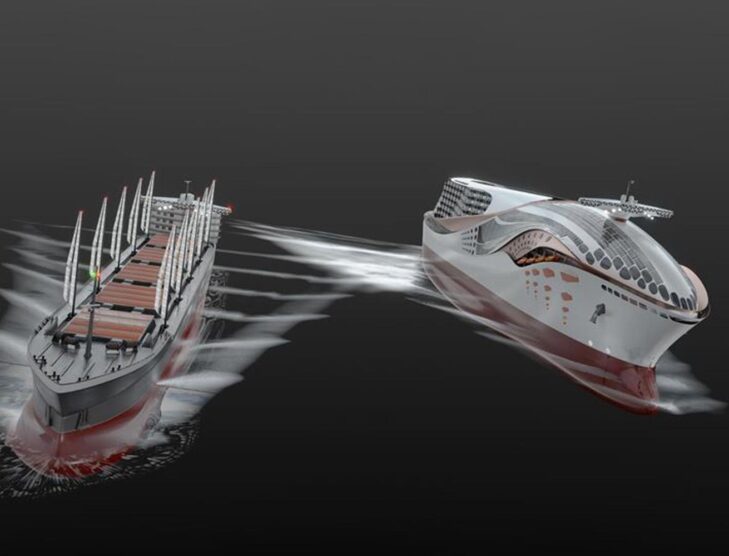
Wärtsilä launches projects to decarbonise shipping, Power-to-X-fuels
Wärtsilä, as part of a consortium led by the University of Vaasa in Finland, will play a major role in an important project aimed at reducing the environmental impact of shipping. Project CHEK – deCarbonising sHipping by Enabling Key technology symbiosis on real vessel concept designs, has been granted funding of EUR10 million (USD12 million) by the EU as part of its Horizon 2020 research and innovation programme.
In addition to the University of Vaasa and Wärtsilä, the other project partners are BAR Technologies, Cargill Ocean Transportation, Climeon, Deltamarin, Hasytec Electronics, Lloyds Register, MSC Cruises, Silverstream Technologies and World Maritime University.
The goal of the CHEK project is to reduce emissions from shipping through the integrated use of low-carbon energy forms and technologies. These include the use of hydrogen fuel, wind power, electric batteries, heat recovery, air lubrication, and new anti-fouling technology. Development work on the way by which vessels are designed and operated is also included.
The project will design two concept vessels; a bulk carrier, which will utilise sails to capture wind energy, and a cruise ship that will operate with a Wärtsilä designed engine running on hydrogen fuel. It is estimated that by combining new and innovative technologies, greenhouse gas emissions can be reduced by 99%, energy savings of up to 50% can be achieved, while black carbon emissions can be cut by more than 95%. Several key enabling technologies will be demonstrated in practice on actual operational ships.
“CHEK represents another significant step in Wärtsilä’s commitment and efforts to decarbonise marine operations. There is no silver bullet to meeting the challenge of combating climate change, you need to exploit a number of parallel paths, and that’s exactly what we are doing together with our partners here. What makes the project so exciting is that we are stretching what can be done,” says Jonas Åkerman, director of Research and Technology Development at Wärtsilä.
The project dovetails with Wärtsilä’s extensive investments in developing an ecosystem of co-creation. The company’s Smart Technology Hub in Vaasa is a new state-of-the-art innovation centre driving research, development, and production aimed at creating solutions for a more sustainable world. This initiative is complemented with Wärtsilä’s Smart Partner Campus platform, where stakeholders are invited to participate in the co-creation of win-win solutions.
Additionally, on January 15, Wärtsilä Finland will cooperate in a project aimed at utilising emissions-free hydrogen in power generation, industry and traffic applications. The project, together with energy companies Vaasan Sähkö and EPV Energia and the City of Vaasa, Finland, will be based in Vaasa and will focus on enabling a new way to store renewable energy. At the same time, the intention is to pilot a hydrogen-based energy generation solution suitable for export markets. It is thought that hydrogen can play a significant role in reaching global climate goals. Using electricity from renewable sources, hydrogen can be produced without emissions.
The goal of the four parties is to jointly build a so-called Power-to-X-to-Power system in Vaasa. The system will use renewable energy to produce hydrogen to be stored and reprocessed. The stored hydrogen can be utilised both in energy production and traffic applications. Electricity generated from renewable energy sources is used as raw material to separate hydrogen from water by electrolysis, and the hydrogen will be then further processed to produce electricity. The solution is not limited to the use of hydrogen – the letter X refers also to other fuels, such as synthetic methane, methanol and ammonia. Energy production would take place in an engine power plant developed by Wärtsilä, using the latest technology.
“Hydrogen and other Power-to-X-fuels will have a significant role in the future energy system and the new related technology opens up excellent export opportunities for Finnish companies. During recent years, we at Wärtsilä have researched synthetic fuels and invested in technology related to these and other future fuels. It is part of our vision for the future whereby electricity is produced from 100% renewable energy. It is great that this project has attracted such remarkable project partners, and through close cooperation we can further accelerate the development towards a cleaner world. The ecosystem around this project represents a concrete demonstration of how Wärtsilä’s new Smart Technology Hub under construction in Vaasa will create new opportunities and build cooperation,” says Matti Rautkivi, director, New Business, Wärtsilä Energy.
.jpg)




